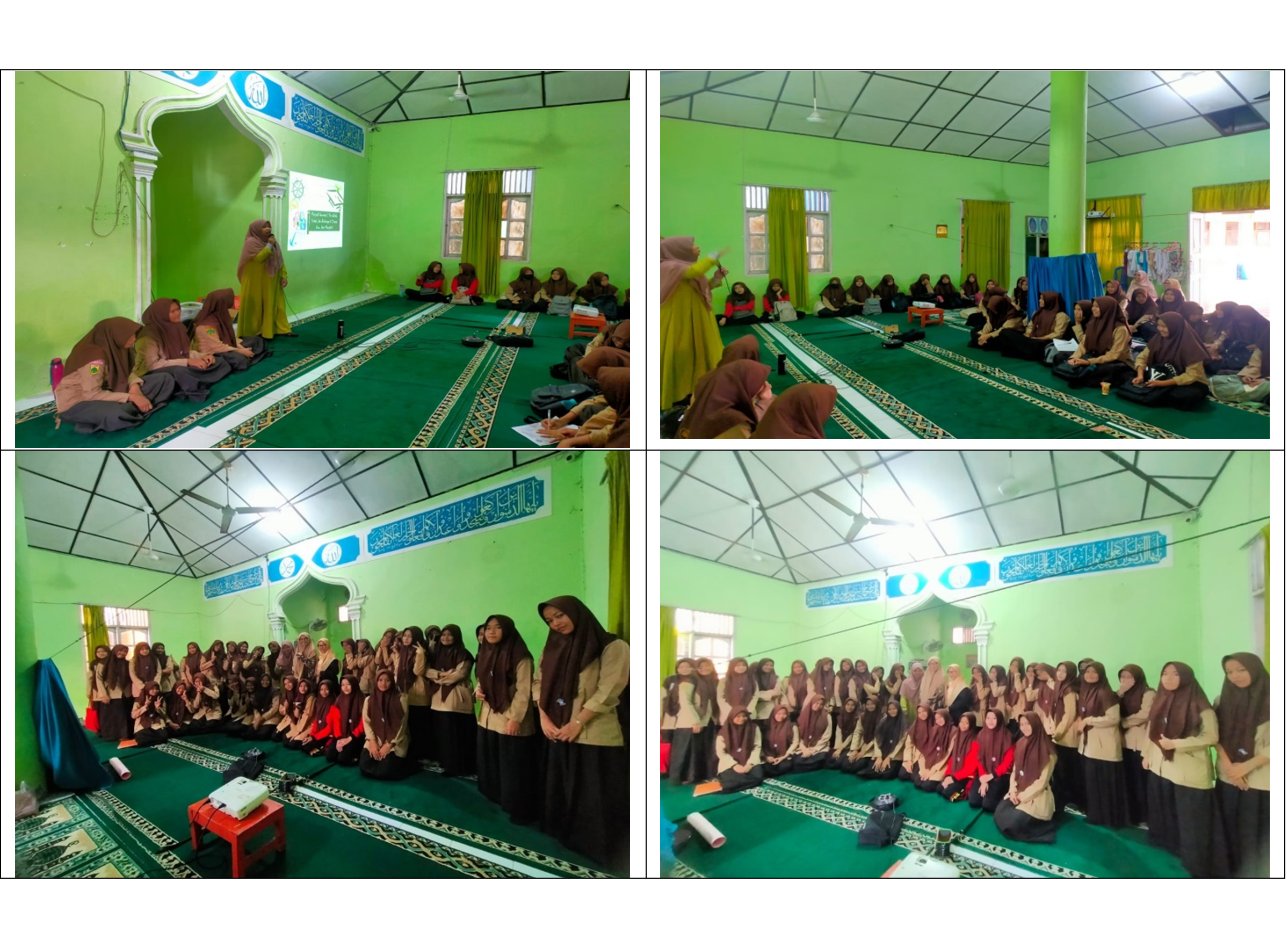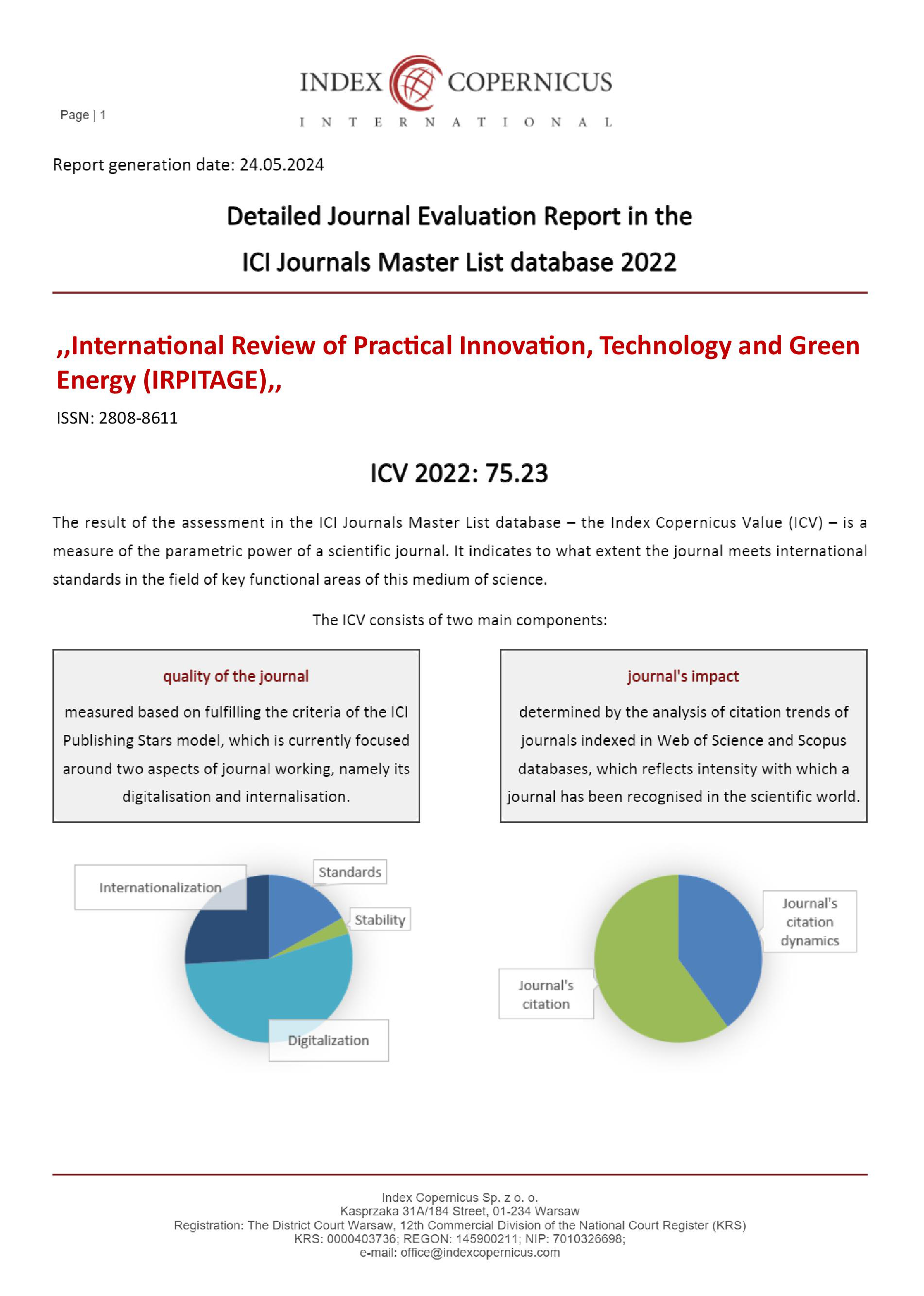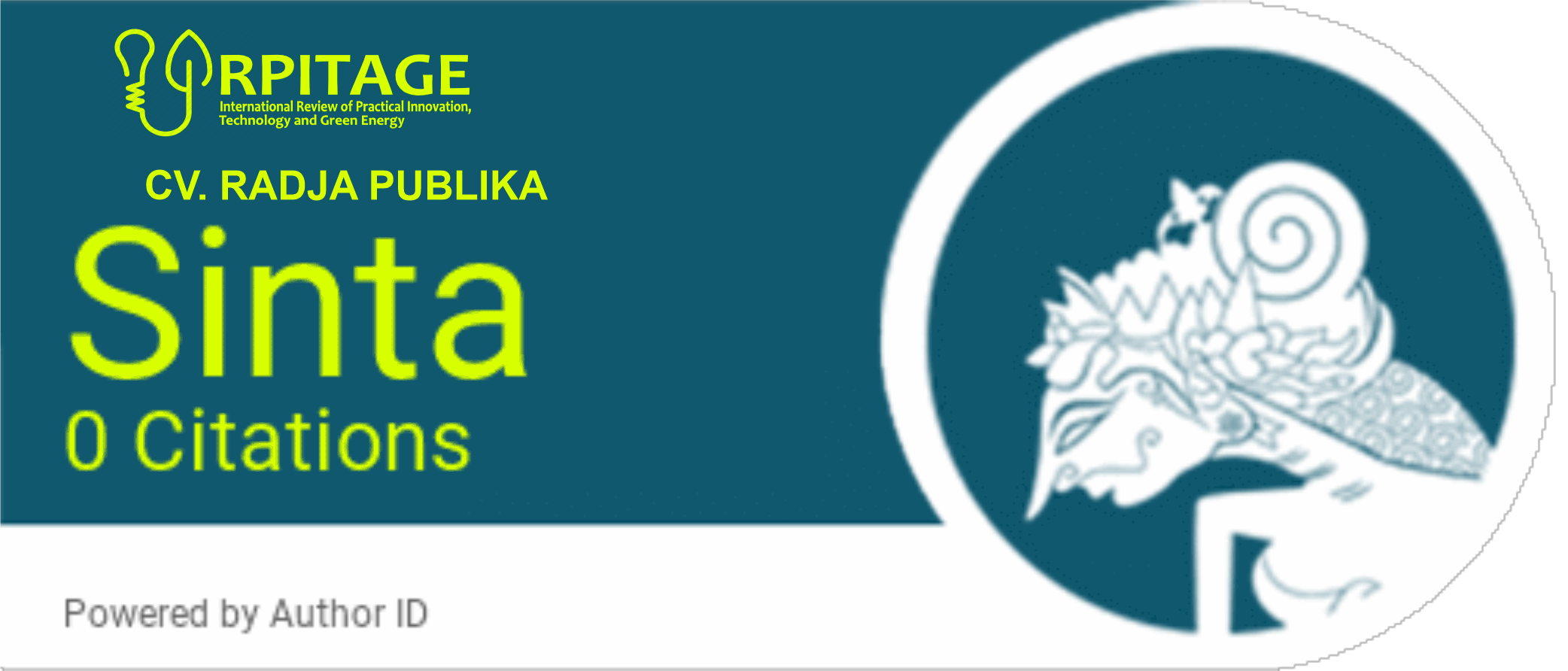
CAMPAIGN FOR MORALITY AND HEALTH IN GENERATION Z
DOI:
10.54443/irpitage.v3i1.1053Published:
2023-07-19Downloads
Abstract
The significance of living in today's world as a moral, healthy member of generation Z. The digital era, which is characterised by easy access to information and cutting-edge technology, is the environment in which Generation Z develops and evolves. The purpose of the initiative is to assist generation Z in overcoming difficulties brought on by low moral risk, a lack of health awareness, and a lack of work-related drive. The method used in a campaign to teach schoolgirl students in generation Z healthy and moral behaviour through lectures looks up. Results indicate which female students learn more about developing moral and healthy behaviours and about expanding comprehension to lessen the possibility of being subjected to associations and media that have unfavourable effects on their morals and health. The conclusion of concurrent campaigns can assist generation Z in defending themselves against the damaging influence of associations and media that affect their morals and physical well-being.
Keywords:
Morals, Health, and Generation ZReferences
Andriani, E., & Hartini, T. (2018). The Influence of Social Media on the Moral Behavior of Generation Z. International Journal of Scientific & Technology Research, 7(11), 176-180.
Anderson, C. A., & Bushman, B. J. (2002). The effects of media violence on society. Science, 295(5564), 2377-2379.
Boyd, D. (2014). It's Complicated: The Social Lives of Networked Teens. Yale University Press.
Choi, Y., Kim, S., & Park, Y. (2020). The Relationships between Physical Activity, Sedentary Behavior, and Mental Health among Generation Z. International Journal of Environmental Research and Public Health, 17(22), 8597.
Daud, N. M., & Azman, N. (2019). Employability Skills among Generation Z in Malaysia: The Role of Education. Journal of Technical Education and Training, 11(2), 26-34.
Faisal, M., & Albar, M. M. (2021). Healthy Lifestyle Behavior of Generation Z: The Mediating Role of Health Consciousness. Indonesian Journal of Business and Entrepreneurship, 7(2), 165-178.
Grant, A. M. (2019). Give and Take: A Revolutionary Approach to Success. Penguin Books.
Kasim, Fajri. (2014). Dampak Perilaku Seks Berisiko terhadap Kesehatan Reproduksi dan Upaya Penanganannya (Studi tentang Perilaku Seks Berisiko pada Usia Muda di Aceh). JURNAL STUDI PEMUDA Vol. 3, No. 1, Mei 2014
Leary, M. R. (2015). The Curse of the Self: Self-Awareness, Egotism, and the Quality of Human Life. Oxford University Press.
Lee, M. C. (2017). How Does Social Media Affect Young People's Health?—A Critical Perspective. International Journal of Environmental Research and Public Health, 14(3), 257.
Lerner, R. M., & Steinberg, L. (Eds.). (2009). Handbook of Adolescent Psychology, Volume 1: Individual Bases of Adolescent Development. John Wiley & Sons.
Lia Octavia, Fajar Susanti, Hasyim As’yari, Marsya Legiandini,. (2017) Penyuluhan Kesehatan Tentang Bahaya Seks Pada Remaja Di SMK Bina Medika Jakarta Timur. Jurnal Pelayanan dan Pengabdian Masyarakat Vol. 1, No. 1, Oktober 2017
Lu, Y., Zhang, L., & Liu, J. (2018). Generation Z: A Review and Future Directions. Frontiers in Psychology, 9, 1816.
Moreno, M. A., & Rideout, V. (Eds.). (2016). Digital Media and Risks for Adolescent Substance Abuse and Problematic Gambling. Oxford University Press.
Primack, B. A., Shensa, A., Sidani, J. E., Whaite, E. O., & Lin, L. Y. (2019). Social media use and perceived social isolation among young adults in the US. American Journal of Preventive Medicine, 57(1), 1-8.
Rakhmawati, N. (2020). The Role of Digital Entrepreneurship in Empowering Generation Z. Journal of Entrepreneurship Education, 23(2), 1-12.
Rideout, V., & Robb, M. B. (2018). The Common Sense Census: Media Use by Tweens and Teens. Common Sense Media.
Rocha, M. R., Araújo, R. M., & Araújo, M. L. (2018). The Role of Generation Z in Transforming Organizations: A Systematic Literature Review. Business: Theory and Practice, 19, 252-261.
Rosmalina, Asriyanti., Abdul Matin, Nasrudin,.(2020). Bimbingan Konseling Islam sebagai Peran Progresif pada Kesehatan Mental. Prophetic: Professional, Empathy and Islamic Counseling Journal Vol. 3, No. 1, Juni 2020, hlm. 63-72
Subrahmanyam, K., Smahel, D., & Greenfield, P. M. (Eds.). (2020). The SAGE Handbook of Developmental Psychology and Early Childhood Education. Sage Publications.
Sriana Banul Maria,2022. Hubungan Tempat Tinggal Dan Akses Media Pornografi Dengan Perilaku Seks Pranikah Remaja Di Smk Kota Ruteng Manuju. Malahayati Nursing Journal, ISSN Cetak: 2655-2728 ISSN Online: 2655-4712, Volume 4 Nomor 11 November 2022] Hal 3077-3089
Syakur, M. A., Rahmawati, D., & Jannah, M. (2020). The Role of Millennial and Generation Z Entrepreneurship in Sustainable Tourism Development. Journal of Management and Entrepreneurship, 1(1), 20-34.
Twenge, J. M. (2017). iGen: Why Today's Super-Connected Kids Are Growing Up Less Rebellious, More Tolerant, Less Happy-and Completely Unprepared for Adulthood-and What That Means for the Rest of Us. Simon and Schuster.
Twenge, J. M., Joiner, T. E., Rogers, M. L., & Martin, G. N. (2018). Increases in depressive symptoms, suicide-related outcomes, and suicide rates among US adolescents after 2010 and links to increased new media screen time. Clinical Psychological Science, 6(1), 3-17.
Yulianto, A. T., & Wibowo, D. A. (2020). The Influence of Parenting Style on Generation Z Students' Entrepreneurial Intention. International Journal of Academic Research in Business and Social Sciences, 10(1), 81-90.
License
Copyright (c) 2023 Enda Silvia Putri, marniati marniati, Itza Mulyani, Khairunnas Khairunnas, Sukma Elida

This work is licensed under a Creative Commons Attribution 4.0 International License.
















